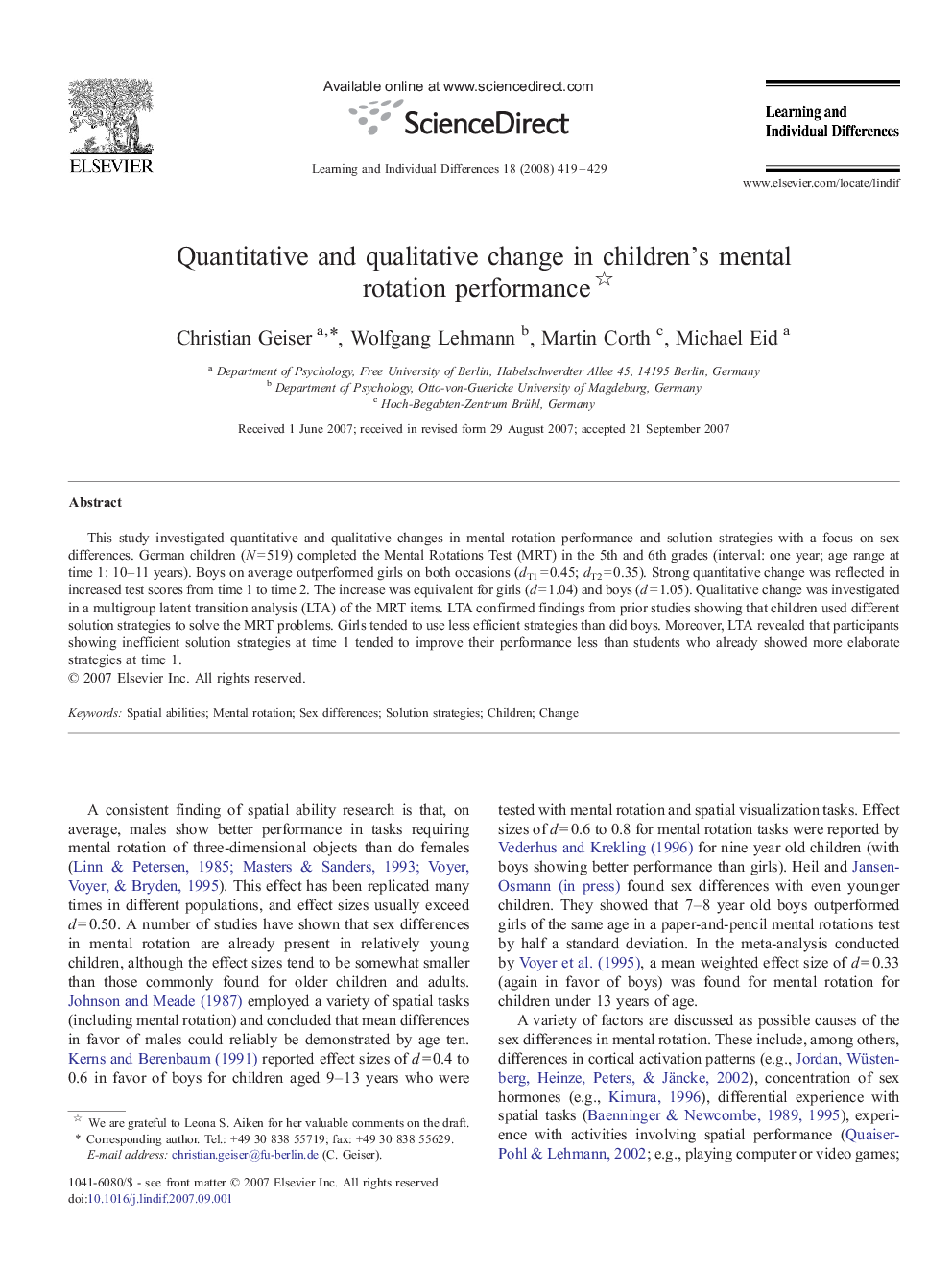| Article ID | Journal | Published Year | Pages | File Type |
|---|---|---|---|---|
| 365447 | Learning and Individual Differences | 2008 | 11 Pages |
This study investigated quantitative and qualitative changes in mental rotation performance and solution strategies with a focus on sex differences. German children (N = 519) completed the Mental Rotations Test (MRT) in the 5th and 6th grades (interval: one year; age range at time 1: 10–11 years). Boys on average outperformed girls on both occasions (dT1 = 0.45; dT2 = 0.35). Strong quantitative change was reflected in increased test scores from time 1 to time 2. The increase was equivalent for girls (d = 1.04) and boys (d = 1.05). Qualitative change was investigated in a multigroup latent transition analysis (LTA) of the MRT items. LTA confirmed findings from prior studies showing that children used different solution strategies to solve the MRT problems. Girls tended to use less efficient strategies than did boys. Moreover, LTA revealed that participants showing inefficient solution strategies at time 1 tended to improve their performance less than students who already showed more elaborate strategies at time 1.
